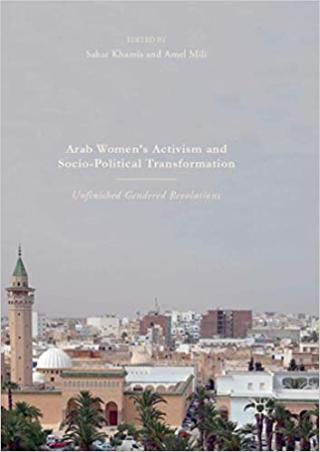Sahar Mohamed Khamis
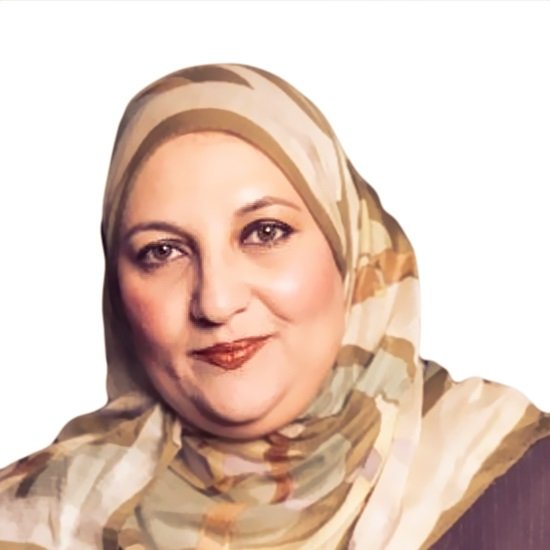
Education
Ph.D., , University of Manchester (U.K.)
Research Expertise
Cultural Studies
Intercultural Communication
Media Studies
Dr. Sahar Khamis is an expert on Arab and Muslim media, and the former Head of the Mass Communication and Information Science Department in Qatar University. She is a former Mellon Islamic Studies Initiative Visiting Professor at the University of Chicago.
She is the co-author of the books: Islam Dot Com: Contemporary Islamic Discourses in Cyberspace (Palgrave Macmillan, 2009) and Egyptian Revolution 2.0: Political Blogging, Civic Engagement and Citizen Journalism (Palgrave Macmillan, 2013), and the co-editor of Arab Women's Activism and Socio-Political Transformation: Unfinished Gendered Revolutions (Palgrave Macmillan, 2018). Additionally, she authored and co-authored numerous book chapters, journal articles and conference papers, regionally and internationally, in both English and Arabic. She is the recipient of a number of prestigious academic and professional awards, as well as a member of the editorial boards of several journals in the field of communication, in general, and the field of Arab and Muslim media, in particular.
Dr. Khamis is a media commentator and analyst, a public speaker, a human rights commissioner in the Human Rights Commission in Montgomery County, Maryland, and a radio host, who presents a monthly radio show on “U.S. Arab Radio” (the first Arab-American radio station broadcasting in the U.S. and Canada).
As of Fall 2023, Dr. Khamis has been elected as the new President of the Arab-US Association for Communication Educators (AUSACE) and as the new Chair of the Spiritual Communication Division at the National Communication Association (NCA). Additionally, Dr. Khamis has been selected to serve on the campus-wide Joint Presidential/Senate Antisemitism and Islamophobia Task Force, effective January, 2024.
Publications
The Paradoxes of Modern Islamic Discourses and Socio-Religious Transformation in the Digital Age.
This critical essay tackles some of the significant transformations and paradoxes which the introduction of the internet invited in modern Muslim societies, with a special focus on two specific domains.
Author/Lead: Sahar Mohamed KhamisThe introduction of the internet brought about many transformations in the political, social, cultural, and educational fields worldwide. This phenomenon of digital transformation introduced a myriad of positive, negative, and paradoxical impacts. This critical essay tackles some of the significant transformations and paradoxes which the introduction of the internet invited in modern Muslim societies, with a special focus on two specific domains. First, the realm of religious authority or obtaining authoritative religious knowledge in the age of the internet. Second, the realm of shifting gendered Islamic identities in the age of cyberspace. In exploring these complex and hybrid phenomena, special attention is paid to the tensions between the opposing forces of tradition and modernity, diversity and cohesion, hegemony and resistance, and globalization and localization in cyberspace, and their numerous and far-reaching effects.
Effective Countering Islamophobia Strategies in the Digital Age: Three Approaches
This article sheds light on three important strategies which have been successfully deployed by modern Muslims to resist Islamophobia in the digital age.
Author/Lead: Sahar Mohamed KhamisOne of the most serious challenges which is still threatening Muslims globally is the surge in Islamophobia, or negative attitudes and excessive fear towards Islam and Muslims. The digital age became a double-edged sword when it comes to the threat of Islamophobia. On one hand, it opened the door for anti-Muslim campaigns to spread widely and quickly online. On the other hand, it provided modern Muslims with much-needed opportunities to resist such hateful campaigns using the very same digital tools. This article sheds light on three important strategies which have been successfully deployed by modern Muslims to resist Islamophobia in the digital age. The first is the effective utilization of humor to resist some of the most hateful anti-Muslim campaigns and misrepresentations in cyberspace and present successful counter-narratives. The second is putting faith in action, through Muslim philanthropy and communal giving, especially amid the COVID-19 pandemic. This has been done by using digital tools to spread and amplify these good deeds, while resisting Islamophobia simultaneously by correcting some of the false images and skewed misrepresentations about Islam and Muslims and replacing them with positive ones. And the third is boosting the visibility of Muslim women’s identities and amplifying their voices, which shatters the negative stereotypes about Muslim women as silent and helpless beings and counters their misrepresentation and marginalization, while countering Islamophobia in parallel. In discussing each of these strategies, the appropriate context is explained and relevant examples are provided to illustrate the arguments made throughout this paper.
Read More about Effective Countering Islamophobia Strategies in the Digital Age: Three Approaches
Revisiting Digital Islamic Feminism: Multiple Resistances, Identities, and Online Communities
Chapter explores digital Islamic feminism.
Author/Lead: Sahar Mohamed Khamis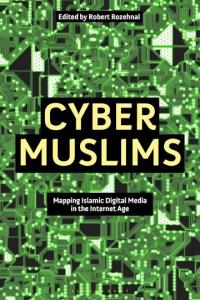
Book abstract: Through an array of detailed case studies, this book explores the vibrant digital expressions of diverse groups of Muslim cybernauts: religious clerics and Sufis, feminists and fashionistas, artists and activists, hajj pilgrims and social media influencers. These stories span a vast cultural and geographic landscape-from Indonesia, Iran, and the Arab Middle East to North America.
These granular case studies contextualize cyber Islam within broader social trends: racism and Islamophobia, gender dynamics, celebrity culture, identity politics, and the shifting terrain of contemporary religious piety and practice.
Egyptian Women Journalists’ Feminist Voices in a Shifting Digitalized Journalistic Field
A qualitative feminist study analyzes Egyptian women journalists’ articulations of their shifting roles, struggles, and resistances.
Author/Lead: Sahar Mohamed KhamisNon-ARHU Contributor(s): Rasha El-Ibiary
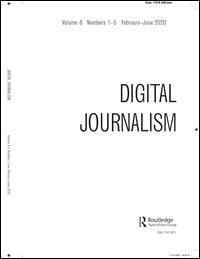
This qualitative feminist study analyzes Egyptian women journalists’ articulations of their shifting roles, struggles, and resistances to the political, legal, socio-economic, and professional challenges in a shifting, hybrid, and digitalized journalistic field. Through analyzing 16 interviews with women journalists representing different media affiliations, experiences, and demographics, this study explores their varied perceptions of the shifts in journalistic professionalism and press freedom in Egypt, their equally shifting professional roles and struggles, and their varied resistance mechanisms. On the one hand, this study unpacks the multiple challenges facing them, such as restricted journalistic autonomy, limited access to information and technology, sexual harassment, lack of job security, and other forms of professional discrimination, in a male-dominated profession and a patriarchal culture. On the other hand, it investigates the parallel resistance mechanisms they deploy to overcome these challenges. We argue that the amalgamation of these cyclical, push-and-pull dynamics gave birth to a new “differentiated media landscape” (Schroeder 2018), representing a third space between mainstream media and citizen journalism, the online and the offline, and the old and the new, in a rapidly evolving journalistic field.
Taming the People: Comparing Protests and Populism in Arab and American Politics
This article compares recent manifestations of populism across contemporary Arab and American contexts.
Author/Lead: Sahar Mohamed KhamisNon-ARHU Contributor(s): Randall Fowler

The rise of populism has been an uncontested global reality in recent years. However, it is unclear exactly how culturally distinct populist movements imitate or mirror each other, especially given the different rhetorical, political, ideological, and cultural contexts within which they operate. This article addresses this issue by comparing recent manifestations of populism across contemporary Arab and American contexts, with a special focus on former United States President Donald Trump’s response to the George Floyd protests and Egyptian President Abdel Fatah el-Sisi’s handling of demonstrations in his country. We argue that each leader deployed common rhetorical tactics as a populist strategy to undermine the protestors’ attempts to articulate the people’s will. At the same time, our analysis shows how the different contexts in which Trump and Sisi operate also impact their ability to successfully translate their populism into political effectiveness. By conducting this analysis, our article shows how similar populist tactics across different cultural contexts may lead to divergent outcomes, revealing the importance of institutional as well as popular bases of support for would-be populist politicians.
Read More about Taming the People: Comparing Protests and Populism in Arab and American Politics
Cyberactivism and the (Re)Framing of Identities and Revolutionary Narratives: A Tale of Two Egyptian Political Actors
Chapter explore cyberactivism among two Egyptian political actors.
Author/Lead: Sahar Mohamed KhamisNon-ARHU Contributor(s): Ehab H. Gomaa
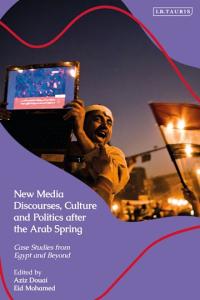
Book abstract: This book investigates the interplay between media, politics, religion, and culture in shaping Arabs' quest for more stable and democratic governance models in the aftermath of the “Arab Spring” uprisings. It focuses on online mediated public debates, specifically user comments on online Arab news sites, and their potential to re-engage citizens in politics. Contributors systematically explore and critique these online communities and spaces in the context of the Arab uprisings, with case studies, largely centered on Egypt, covering micro-bloggers, Islamic discourse online, Libyan nationalism on Facebook, and a computational assessment of online engagement, among other topics.
Modern Muslims’ Online Struggle: Countering Islamophobia One Tweet at a Time
Sheds light on some of the most creative online campaigns which have been launched to counter Islamophobia and overcome the negative stereotypes and skewed (mis)representations of Islam and Muslims, especially in the West.
Author/Lead: Sahar Mohamed Khamis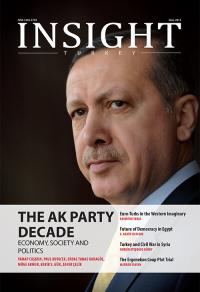
This commentary sheds light on some of the most creative online campaigns which have been launched to counter Islamophobia and overcome the negative stereotypes and skewed (mis)representations of Islam and Muslims, especially in the West. It provides a number of scholarly definitions of Islamophobia and explains why, and how, social media could act as a double-edged sword, which may fuel Islamophobia, on the one hand, while providing effective tools to counter it, on the other hand. It highlights several examples illustrating both effects of the social media, while focusing on the factors behind the success of some online countering Islamophobia campaigns, such as the amplification of Muslims’ voices, including gendered voices; the deployment of humor; and the selection of suitable strategies, tactics, and tools. It concludes with a few thoughts on what needs to be done to ensure the success and continuation of countering Islamophobia efforts, moving forward.
Read More about Modern Muslims’ Online Struggle: Countering Islamophobia One Tweet at a Time
“I’ll See You on Zoom!” International Educators’ Perceptions of Online Teaching Amid, and Beyond, Covid-19
This exploratory qualitative research study investigates the critical and timely topic of the sudden transition to online teaching amid the COVID-19 pandemic.
Author/Lead: Sahar Mohamed KhamisNon-ARHU Contributor(s): Adity Saxena

When the COVID-19 pandemic swept the world in 2020, it affected every aspect of life, including education. The spread of this pandemic compelled the world to shift from traditional classroom education to online learning. This exploratory qualitative research study investigates the critical and timely topic of the sudden transition to online teaching amid the COVID-19 pandemic. It studies its multiple implications through in-depth interviews with a diverse group of international educators from different higher education institutions, representing different nationalities, ethnicities, genders, ranks, and generations. The findings reflect an early snapshot of the continuous teaching and learning development efforts on a large scale, across different regions of the world, and provide insights for future research and practice in the field of international education. The results also reveal some areas of concern in the educational digital environment, requiring further investigation moving forward, such as the digital divide, the gender gap, especially the gender digital gap, and the importance of meeting the needs of students with various physical and mental disabilities. The study offers suggestions to improve online education strategies, both amid the pandemic and in the post-pandemic era.
Between “Digital Euphoria” and “Cyber-Authoritarianism:” Technology’s Two Faces
This article revisits the potentials and limitations of the phenomenon of cyberactivism, or the reliance on social media to enact change, ten years after the eruption of the Arab Spring uprisings.
Author/Lead: Sahar Mohamed KhamisThis article revisits the potentials and limitations of the phenomenon of cyberactivism, or the reliance on social media to enact change, ten years after the eruption of the Arab Spring uprisings. In doing so, it urges us to engage not only in an evaluation of the current dynamics of cyberactivism, but also in a prediction of its future directions, in the midst of the ongoing digital tug of war between regimes and their opponents in the volatile Arab region, and beyond. (Published in Italian in 2020 and in English and French in 2021.)
Info-Deficiency in an Infodemic: The Gender Digital Gap, Arab Women and the COVID-19 Pandemic
This article tackles the complex struggles faced by Arab women, including multiple layers of invisibility, marginalization and inequality, all of which have significantly worsened during the COVID-19 pandemic.
Author/Lead: Sahar Mohamed KhamisNon-ARHU Contributor(s): Eliza Campbell

This article tackles the complex struggles faced by Arab women, including multiple layers of invisibility, marginalization and inequality, all of which have significantly worsened during the COVID-19 pandemic. This examination includes a special focus on how and why the “digital divide,” defined as the gap between the technological haves and have-nots, has been a major contributing factor to this accelerating inequality. It proposes adopting an alternative ‘digital socialism’ model and a comprehensive, gender-centered leadership approach to address this situation.
Arab resistance in the diaspora: Comparing the Saudi dissident and the Egyptian whistleblower
This article explores how two particular diasporic groups, Egyptian and Saudi activists, work to shape public perceptions of the authoritarian regimes in their countries of origin.
Author/Lead: Sahar Mohamed KhamisContributor(s): Randall Fowler
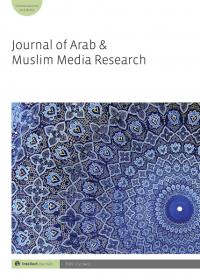
While much research on Arab and Muslim diasporas in the West focuses on the War(s) on Terror, in this article, we explore how two particular diasporic groups, Egyptian and Saudi activists, work to shape public perceptions of the authoritarian regimes in their countries of origin. Contextualizing the efforts of these activists in the post-Arab Spring political and mediated environments, we investigate how these political exiles employ communication to disrupt, expose and resist the resurgent authoritarianism taking root in their countries of origin. Using a comparative framework, we analyze the discourse of two prominent activists, Mohamed Ali and Omar Abdelaziz, to illustrate the larger dynamics of online cyberactivism amongst these diasporic groups. Critically, we argue, the differences in these two activists’ communicative practices demonstrate how ostensibly similar resistance movements may lead to disparate political outcomes, as their calls for change diverge when it comes to issues of reform versus revolution. In doing so, we seek to complicate overly simplistic understandings of Arab anti-authoritarian resistance taking place online in the post-Arab Spring era.
Arab Women's Activism and Socio-Political Transformation: Unfinished Gendered Revolutions
How Arab women have been engaging in three ongoing, parallel struggles, before, during, and after the Arab Spring.
Author/Lead: Sahar Mohamed KhamisNon-ARHU Contributor(s): Amel Mili
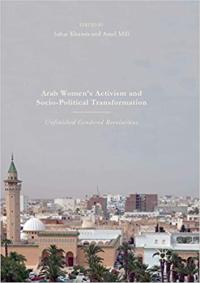
This book illustrates how Arab women have been engaging in three ongoing, parallel struggles, before, during, and after the Arab Spring, on three levels, namely: the political struggle to pave the road for democracy, freedom, and reform; the social struggle to achieve gender equality and fight all forms of injustice and discrimination against women; and the legal struggle to chart new laws which can safeguard both the political and the social gains. The contributors argue that while the political upheavals were oftentimes more prevalent and visible, they should not overshadow the parallel social and legal revolutions which are equally important, due to their long-term impacts on the region. The chapters shed light on the intersections, overlaps and divergences between these simultaneous, continuous gendered struggles and unpacks their complexities and multiple implications, locally, regionally, and internationally, across different countries and through different phases.
Egyptian Revolution 2.0: Political Blogging, Civic Engagement, and Citizen Journalism
Cyberactivism in the Arab world.
Author/Lead: Sahar Mohamed KhamisNon-ARHU Contributor(s): Mohammed El-Nawawy
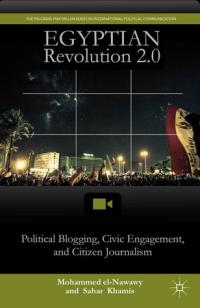
This book sheds light on the growing phenomenon of cyberactivism in the Arab world, with a special focus on the Egyptian political blogosphere and its role in paving the way to democratization and socio-political change in Egypt, which culminated in Egypt's historical popular revolution.
Islam Dot Com: Contemporary Islamic Discourses in Cyberspace
Analyzing Islamic discourses in cyberspace.
Author/Lead: Sahar Mohamed KhamisNon-ARHU Contributor(s): Mohammed El-Nawawy

This book analyzes the discourses and deliberations in the discussion forums of three of the most visited Islamic websites and investigates the extent to which they have provided a venue for Muslims to freely engage in discussion among themselves and with non-Muslims about political, economic, religious and social issues.
Read More about Islam Dot Com: Contemporary Islamic Discourses in Cyberspace


